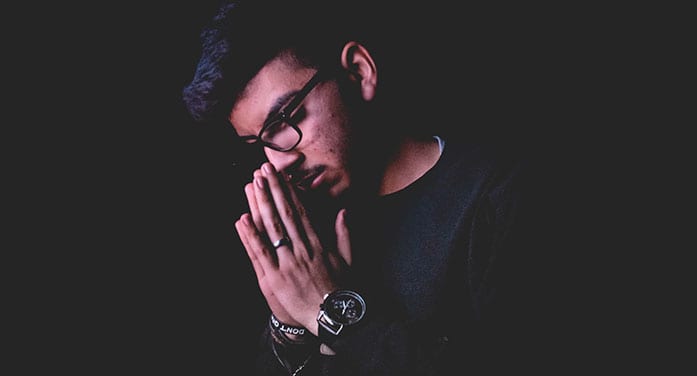 Springtime – which includes observances like Easter, Passover and Ramadan – seems a good time to bust the popular Canadian myth that religion is a completely private, personal matter with little relevance for broader Canadian society.
Springtime – which includes observances like Easter, Passover and Ramadan – seems a good time to bust the popular Canadian myth that religion is a completely private, personal matter with little relevance for broader Canadian society.
New evidence from the Angus Reid Institute, in partnership with the think-tank Cardus, indicates the opposite is true: religion matters profoundly for many of us, especially in the age of COVID-19.
There are indications in the Angus Reid Institute survey of spiritual hunger that should cause authorities to consider houses of worship just as much an essential service as grocery stores to our physical needs.
Angus Reid Institute found that among Canadians polled who regularly attend religious services (about one in five of all Canadians) 97 per cent agree that their personal faith is “a very central and fundamental part” of who they are. It’s core to their identity. That’s qualitatively and fundamentally different from any hobby, sport or other activity in which Canadians find personal satisfaction.
Why does that matter?
It matters because public health orders restricting in-person religious worship (or virtually shutting it down in British Columbia and some other regions) severely hamper the expression of these Canadians’ core identities.
So it’s not surprising that eight in 10 Canadians polled who regularly attend religious services say they miss attending in-person worship like they did pre-COVID. In the case of Catholics, they deeply miss taking communion, which is by definition a communal and sacred practice. More generally, these Canadians miss their religious community, ceremonies and rituals, and being in a sacred place.
One in five of this group say COVID has had an overall negative impact on their spiritual state.
They feel aggrieved, too.
Four in 10 surveyed agree that COVID restrictions on places of worship, compared to other public venues (like gyms, liquor and marijuana stores, or restaurants) have been unfair. That feeling rises to half of all respondents in British Columbia and is almost as high in Manitoba. When a movie shoot simulating a church service is allowed under the restrictions but an actual church service isn’t, it’s clear authorities don’t understand that worship isn’t a performance for believers – it’s part of their identity.
Despite the personal cost and the sense of injustice, compliance with public health orders remains high. Sensational headlines about exceptional cases notwithstanding, only around one per cent of respondents said the place of worship they normally attend has remained open throughout the pandemic. For about 70 per cent, their church, synagogue, masjid or temple has been entirely or mostly closed. The remainder have been able to stay open, but with restrictions on attendance and activities.
None of this is to downplay other effects of the pandemic or associated lockdowns.
By far, long-term care home residents and workers are the worst off. Those who have lost businesses and jobs deserve due consideration, as do families and people dealing with depression, loneliness and isolation.
Communities of worship are frequently the places that those dealing with the extra-physical forms of suffering turn for relief. “Closed due to COVID” adds insult to the injury.
Authorities need to understand and accept this. While this wouldn’t exempt public worship from public health orders, it would result in a more even-handed approach and a recognition of the importance of the sacred.
All Canadians would benefit from this, even those with no interest in religion.
The public actions of people of faith flow from their public, communal worship. Those services and communities often function as a machine to transform faith into service of others, especially those most in need. So it’s especially worrying that the poll found that 51 per cent of poll respondents have had to reduce their community outreach and volunteer work.
Pre-COVID, the activities of Canada’s more than 28,000 religious congregations, as well as other religiously-motivated activities and initiatives, annually produced an estimated $67.5 billion worth of public good. This includes food and nutrition programs, providing housing and childcare, and saving lives through addiction treatment, among myriad other initiatives.
As Canada inches toward leaving COVID-19 behind, and while many Canadians look forward to holidays that give them bright hope for the future, it’s time to finally put to rest the myth that religion is a completely private, personal matter.
It has a public dimension. Authorities and their pandemic plans need to recognize that reality.
Ray Pennings is executive vice-president of the think-tank Cardus, based in Ottawa.
This commentary was submitted by Convivium, Cardus‘s online magazine. Cardus is a leading think-tank and registered charity. Convivium is a Troy Media Editorial Content Provider Partner.
The views, opinions and positions expressed by columnists and contributors are the authors’ alone. They do not inherently or expressly reflect the views, opinions and/or positions of our publication.


